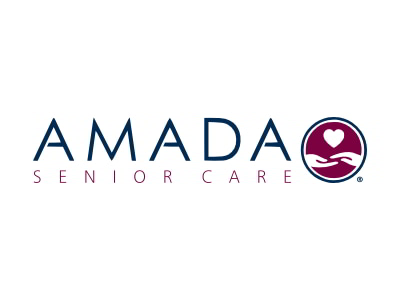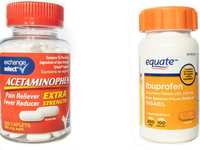- Categories :
- More
Understanding Cholesterol and Heart Health After 60

Heart health becomes even more important as we age. After age 60, changes in the body, lifestyle patterns, and even medications can all affect how well the heart and blood vessels function. One of the most important factors in maintaining cardiovascular health is cholesterol. Understanding what cholesterol is, how it works, and how to manage it can help seniors (and the families who care for them) protect their health and quality of life.
What Is Cholesterol?
Cholesterol is a waxy, fat-like substance found in your blood. The body needs cholesterol to build cells, produce hormones, and aid digestion. But too much cholesterol—or the wrong type—can increase the risk of heart disease and stroke.
There are two main types:
LDL (low-density lipoprotein) – Often called “bad” cholesterol, LDL can build up in the arteries, forming plaque that makes them narrow and stiff.
HDL (high-density lipoprotein) – Known as “good” cholesterol, HDL helps remove LDL from the bloodstream, carrying it back to the liver for processing and removal.
A healthy balance between LDL and HDL is critical for heart health.
Why Cholesterol Matters More After 60
As people age, the body’s ability to manage cholesterol changes. Seniors may experience:
- Slower metabolism – making it easier for LDL to build up.
- Hormonal changes – especially for women after menopause, when estrogen’s protective effect on cholesterol levels decreases.
- Medication interactions – some prescriptions for other conditions (like diuretics or steroids) can impact cholesterol.
- Higher risk factors – including diabetes, high blood pressure, and reduced activity levels.
According to the CDC, nearly 2 out of 3 adults over 60 have high cholesterol—a major contributor to heart disease, the leading cause of death for older Americans.
Symptoms of High Cholesterol: What Seniors Need to Know
One of the most challenging aspects of cholesterol is that it usually has no symptoms. Unlike high blood pressure, which can cause headaches or dizziness, cholesterol is silent until it causes problems like:
- Chest pain (angina)
- Shortness of breath
- Heart attack
- Stroke
Because there are no clear warning signs, regular cholesterol screenings are essential, especially for adults over 60.
How High Cholesterol Impacts Seniors
Too much LDL cholesterol can lead to atherosclerosis—plaque buildup in the arteries. For older adults, this increases the risk of:
Coronary artery disease (narrowing of heart arteries)
Peripheral artery disease (poor circulation in the legs)
Stroke (from blocked or ruptured vessels in the brain)
Cognitive decline (some research suggests poor circulation may impact brain health)
Prevention and Management Tips for Seniors Diagnosed With High Cholesterol
The good news is that seniors and their families can take steps to prevent and manage high cholesterol:
1. Regular Checkups
- Have cholesterol levels checked every 4–6 years, or more often if recommended.
- Ask your doctor about your “cholesterol panel” results: total cholesterol, LDL, HDL, and triglycerides.
2. Heart-Healthy Diet
- Choose fruits, vegetables, whole grains, lean protein, and healthy fats (like olive oil and nuts).
- Limit foods high in saturated fats and trans fats (processed meats, fried foods, baked goods).
- Increase intake of omega-3 fatty acids (salmon, flaxseeds, walnuts).
3. Stay Active
- Aim for at least 150 minutes per week of moderate activity (such as walking, swimming, or cycling).
- Even light daily movement—stretching, chair exercises, or gardening—supports healthy cholesterol levels.
4. Maintain a Healthy Weight
- Losing even 5–10 pounds can improve cholesterol and heart health.
- Work with a healthcare provider on realistic, safe weight goals.
5. Quit Smoking and Limit Alcohol
- Smoking lowers HDL (“good”) cholesterol and damages arteries.
- Moderate alcohol intake (no more than 1 drink per day for women, 2 for men) may help HDL levels, but excessive drinking raises risks.
6. Medication, When Needed
- Doctors may prescribe statins or other cholesterol-lowering medications if lifestyle changes aren’t enough.
- Seniors should talk to their doctor about side effects and interactions with other prescriptions.
How Non-Medical Home Care Can Help Seniors Manage High Cholesterol
For many seniors, knowing what to do is one thing—but putting healthy habits into practice every day can be challenging. This is where non-medical home care makes a difference:
Meal Support – Caregivers can help with grocery shopping, meal planning, and preparing heart-healthy foods that align with cholesterol management goals.
Encouragement to Stay Active – A caregiver can accompany seniors on walks, assist with safe at-home exercises, or motivate them to keep moving.
Medication Reminders – While caregivers don’t administer medications, they can provide gentle reminders to take prescribed cholesterol or blood pressure medications on time.
Fall and Safety Support – Since balance issues and fatigue can affect seniors, having a caregiver nearby can reduce risks and provide peace of mind.
Companionship and Stress Reduction – Loneliness and stress can negatively impact heart health. Companionship from a trusted caregiver promotes emotional well-being.
For families, home care offers reassurance that their loved one isn’t navigating health routines alone—support is there to reinforce positive habits day after day.
Conversation Starters About Health for Family Members and Senior Loved Ones
Sometimes the hardest part is starting the conversation. Here are three gentle, family-friendly prompts families can use this month to check in on a senior loved one’s heart health:
- “How are you feeling after your last checkup?”
– Encourages your loved one to share updates and concerns from their doctor visits. - “What meals make you feel your best?”
– Opens the door to discussing healthier food options without making it feel restrictive. - “Would you like a walking buddy this week?”
– Creates an opportunity for shared activity while showing support for staying active.
These small, supportive conversations can make seniors feel cared for while also helping families stay engaged in their aging loved one’s heart health.
Managing Cholesterol Symptoms is Essential to Better Health in the Golden Years
Cholesterol may not cause symptoms, but its effects on the heart and brain can be serious, especially after 60. Seniors and families can find abundant cholesterol education and resources this month, as September marks National Cholesterol Education Month.
The campaign aims to empower older adults and seniors to take control of their heart health and prevent cardiovascular diseases. By understanding what cholesterol is and how to manage it, seniors and their loved ones can take proactive steps toward better heart health.
With the right balance of lifestyle choices, medical care, family support, and possibly non-medical home care assistance if needed, aging seniors increase their chances of living a longer, healthier, and more vibrant life.

















